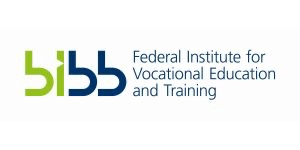African countries are embracing national qualifications frameworks (NQFs) to integrate new competencies in TVET and to strengthen recognition of formal, non-formal and informal learning.
Many African countries have implemented or are in the process of implementing NQFs to shift from ‘knowledge-based’ to ‘competency-based’ curricula and to integrate new qualifications and competencies into their training. Of 41 African countries examined by the African Continental Qualifications Framework mapping study in 2021, 22 had already approved NQFs, 8 were in the process of developing NQFs, and 8 were planning to develop an NQF. Only 3 countries had no NQF. (ACQF 2021)
Qualification frameworks promote the transparency and recognition of new and existing qualifications and competencies by classifying them according to set criteria and levels. They also facilitate recognition of prior learning (RPL) processes to validate skills acquired informally or non-formally through competency-based assessments. RPL is a key policy priority in Africa to create pathways to further education and decent employment for the large proportion of young people and adults who have gained skills outside the formal education system. (ILO 2019)
Comprehensive qualification frameworks, which integrate all academic and vocational qualifications in a single framework, have been found to provide learners with strong pathways to further education via both the academic and vocational tracks. (ILO 2019)
According to TVET experts consulted in 2021, comprehensive qualification frameworks can also raise the standing of TVET qualifications. (BILT scoping study of current TVET trends in Africa carried out in 2021)

AdobeStock_490738720
Capacity constraints and negative perceptions have limited the positive impacts of NQFs and RPL processes in Africa.

AdobeStock_354074681
Strengthening and harmonizing qualifications frameworks across Africa could support the region's aim of becoming a global powerhouse while supporting labour mobility and promoting inclusive growth
The BILT project is implemented by

with support of

and sponsored by

UNESCO-UNEVOC International Centre
for Technical and Vocational Education and Training
UN Campus, Platz der Vereinten Nationen 1
53113 Bonn, Germany
Contact
Data privacy statement | Contacts | © UNESCO-UNEVOC